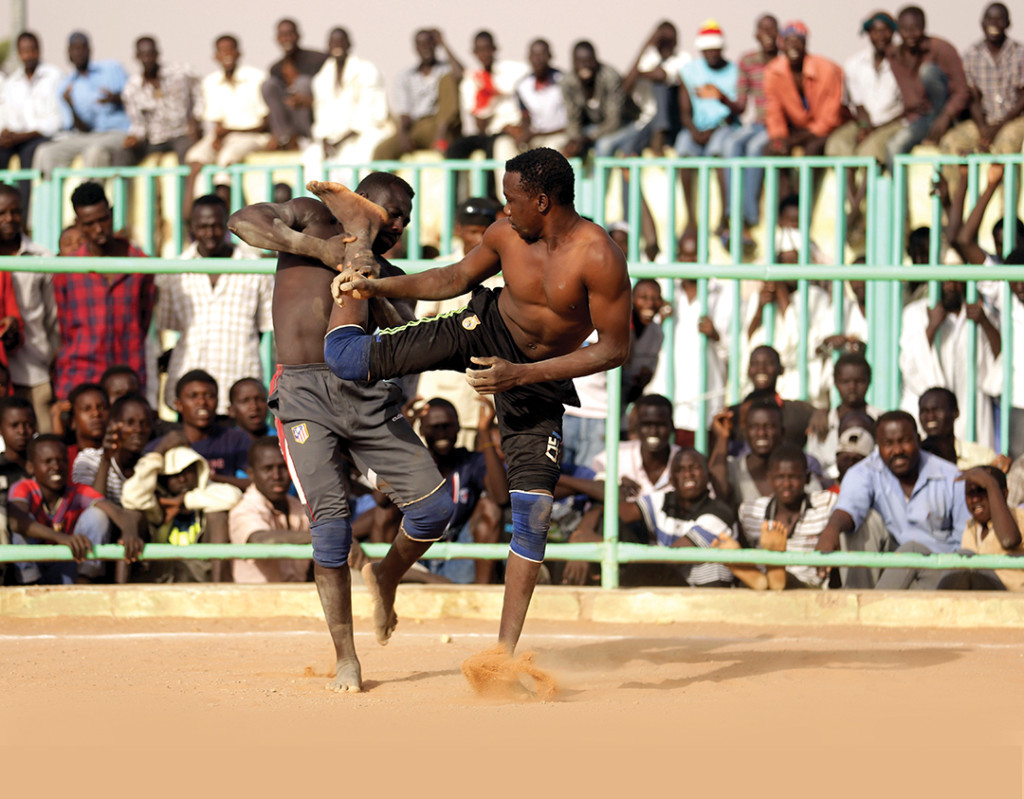AGENCE FRANCE-PRESSE
In a crumbling Khartoum sports hall, a dozen Nuba men in sweat-faded singlets practiced wrestling moves under the critical gaze of their Japanese coach, 23-year-old Kosuke Sunagawa.
Wrestling has been a part of the religiously and ethnically diverse area around the Nuba Mountains for millennia, and many of the sinewy young athletes entered the ring as soon as they were old enough to walk.
But coach Suna, as he is known, a Japanese youth wrestling champion, was tasked by his country’s Khartoum embassy with delivering a first in Nuba history –– building a medal-winning Olympic team in time for Tokyo 2020.
The wrestlers “really have excellent physical strength,” the coach said.
Olympic wrestling is well-established in Japan, which has won a number of medals at recent games. But Tokyo’s interest in Nuba wrestling started in 2013, when a diplomat from its embassy challenged some of the local champions.
Yasuhiro Murotatsu lost all six of his matches, but the bouts proved popular, attracting hundreds of spectators. Japan seized on the interest he created to try to build ties with Sudan. The embassy invested $50,000 in the program, in a country with a government that has been wary of foreign influence.
Suna’s task is no small order. Sudan has won just one Olympic medal since 1960, and although Suna’s squad members have wrestled since they could walk, the Olympic rules are new to them. In Nuba wrestling, a competitor wins simply by throwing his opponent to the ground. The Olympic version awards points for different moves, and a player wins automatically by pinning his opponent to the mat.
“I am exerting every effort to unlock their potential as much as possible through creating tailor-made programs,” Suna said at the session, the last of his monthlong visit to Khartoum. Six of the best wrestlers traveled to Japan for training later, but much needs to be done to nurture a full team.
The Nuba in Khartoum originally came from Sudan’s war-torn South Kordofan region. Finding time for training has been difficult, because the wrestlers must work to support themselves.
“There is a lack of adequate training; there is a lack of facilities,” said Ahmed Hashim, secretary general of Sudan’s Olympic committee.

